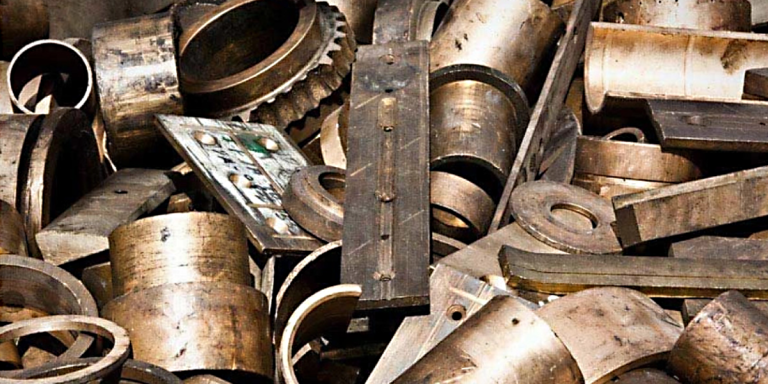
Bronze scrap is one of the most valued non-ferrous metals in Venezuela’s recycling market. Thanks to its durability, resistance, and attractive color, bronze is widely used in industrial parts, mechanical components, decorative pieces, and plumbing fittings.
In this guide, you’ll learn what bronze scrap is, its types, current prices, where to sell it in Venezuela, and how to recycle it for maximum profit.
What Is Bronze Scrap?
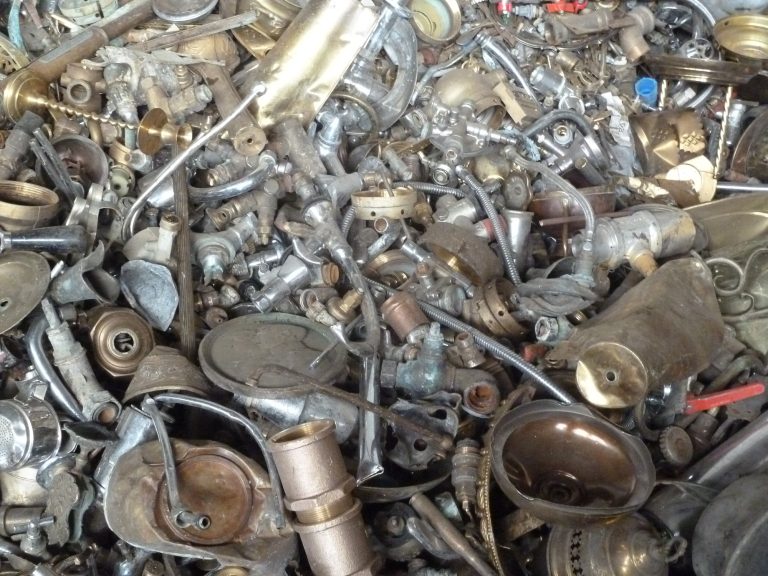
Bronze is an alloy mainly composed of copper and tin, sometimes with other metals such as aluminum, nickel, or zinc to enhance specific properties.
Bronze scrap comes from parts, waste, or products that have reached the end of their life cycle but can be recycled and melted to manufacture new items.
Key characteristics of bronze:
High resistance to corrosion and wear
Good thermal and electrical conductivity (lower than copper)
Easy to melt and mold
Recyclable without significant quality loss
Types of Bronze Scrap in Venezuela
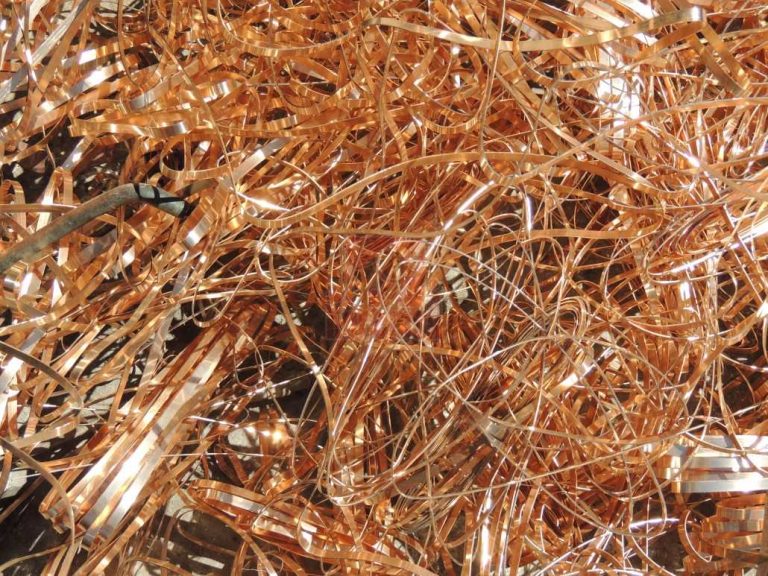
In the Venezuelan market, bronze scrap is mainly classified by composition and original use:
1. Red Bronze
-
Higher copper content
-
Used in bearings, bushings, and mechanical parts
-
More valuable due to higher purity
2. Yellow Bronze
Higher proportion of zinc in the mix
Common in valves, faucets, and decorative fittings
3. Phosphor Bronze
Contains phosphorus for greater hardness and strength
Popular in high-performance industrial components
4. Aluminum Bronze
Includes aluminum in its composition
Excellent corrosion resistance, often used in marine applications
Bronze Scrap Prices in Venezuela
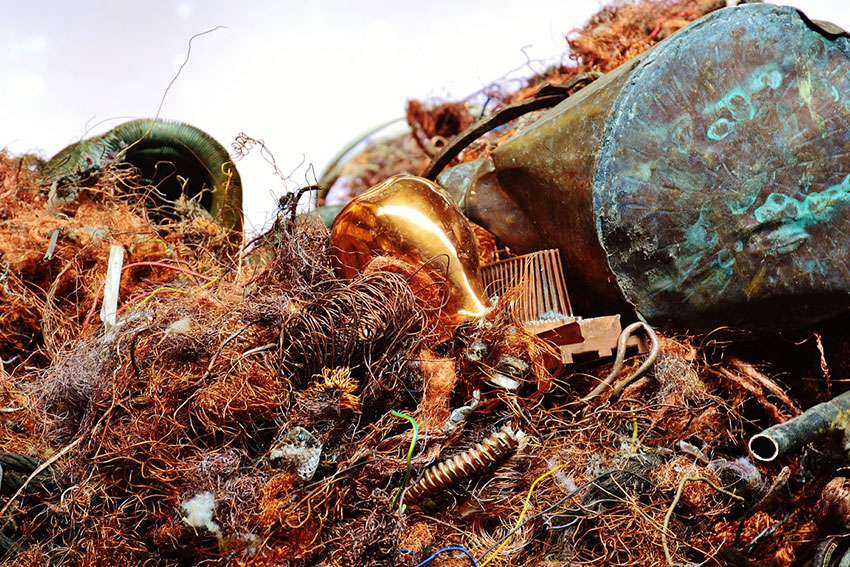
The price of recycled bronze depends on:
Copper percentage in the alloy
Condition and cleanliness of the material
International copper and tin prices
USD exchange rate
Transportation and logistics costs
Bronze Recycling Process
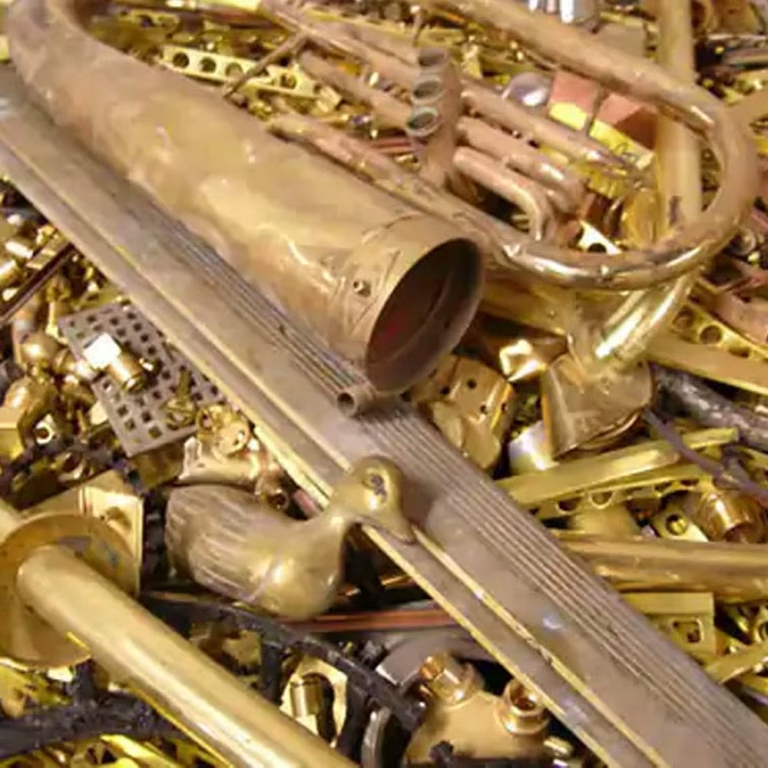
Recycling bronze follows a process similar to copper recycling:
Collection: From scrapyards, mechanical workshops, construction sites, shipyards, and plumbing companies
Sorting: Separation by bronze type and purity
Cleaning: Removal of oils, paint, or other contaminants
Melting: Bronze is melted between 850°C and 950°C (1,562°F – 1,742°F)
Casting: Production of ingots or parts for reuse in industry
Benefits of Recycling Bronze Scrap
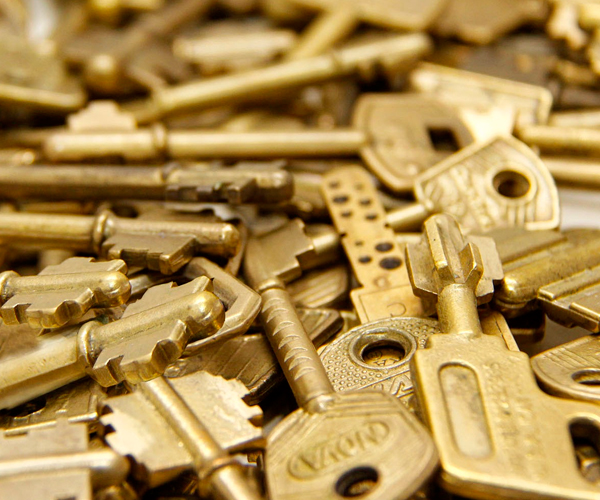
Profitability: Good value due to its copper content
Sustainability: Reduces the need for mineral extraction
Versatility: Can be transformed into a wide variety of products
Energy savings: Lower energy consumption compared to primary production
Where to Sell Bronze Scrap in Venezuela
Cities with high bronze scrap trade activity include:
Caracas
Valencia
Maracaibo
Puerto Ordaz
Barquisimeto
- Aragua
Selling tips:
Classify bronze by type to get a better price
Sell in large batches to negotiate higher rates
Compare prices among different buyers
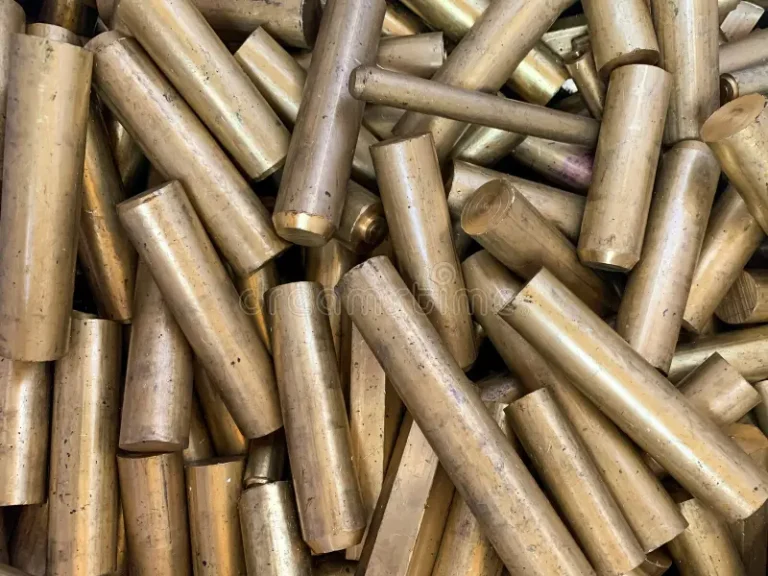
Tips to Maximize Profits
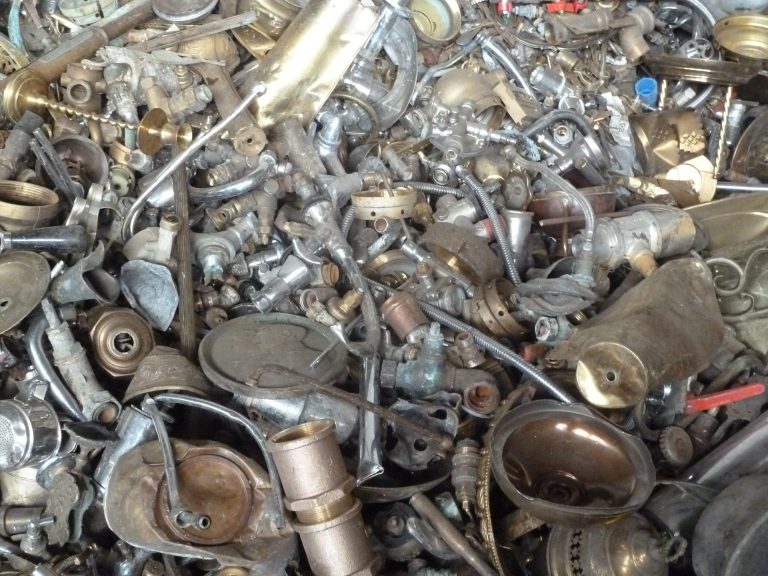
Remove contaminants and residues before selling
Accumulate enough material before going to market
Keep track of international copper and tin prices
Build long-term relationships with reliable recycling companies
Bronze Scrap Price List
| LISTA DE PRECIO | TONELADA ($) | KG ($)a |
|---|---|---|
| LATON CHATARRA | 6650 | 6,65 |
| RADIADORES DE LATON | 6450 | 6,45 |
| RADIADORES MIXTO | 5450 | 5,45 |
| ALUMINIO PERFIL 1 | 2150 | 2,15 |
| ALIMINIO INDUSTRIAL | 2150 | 2,15 |
| ALUMINIO LITOGRAFIA | 2150 | 2,15 |
| ALUMINIO MIXTO | 1650 | 1,65 |
| ALUMINIO MIXTO (SUCIO) | 1450 | 1,45 |
| ALUMINIO DURO | 1700 | 1,70 |
| ALUMINIO DURO (SUCIO) | 1500 | 1,50 |
| FOIL | 500 | 0,50 |
| ACERO CORTO | 800 | 0,80 |
| ACERO LARGO + 1Mts | 700 | 0,70 |
| CALAMINA | 1700 | 1,70 |
| POTE | 1750 | 1,75 |
| RAD. DE ALUMINIO | 1400 | 1,40 |
| PLOMO EN LINGOTES | 1450 | 1,45 |
| PLOMO CHATARRA | 1200 | 1.20 |
| BATERIA | 8300 | 8,30 |
| AIRES ACONDICIONADOS PEQUEÑO | 15 | |
| AIRES ACONDICIONADOS GRANDE | 20 | |
| MOTORES PEQUEÑOS | 4,00 | |
| MOTORES GRANDE | 6,00 | |
| COSTO DE GUIA S/PESO (MAT NO FERROSOS.) | $ 7/TN | |
| COSTO DE GUIA S/PESO (MAT ESPECIAL EMBO. NO.) | $ 8/TN | |
| HIERRO (PUESTO LA GUAIRA) | 210 | 2,10 |
| HIERRO (PUESTO PUERTO CABELLO) | 210 | 2,10 |
| HIERRO CAGUA | 175 | 1,75 |
Frequently Asked Questions about Bronze Scrap
What is bronze scrap?
It is recyclable bronze from parts, pipes, fittings, industrial components, and decorative items that have lost their original use but retain their properties.
How much is a kilo of bronze scrap worth in Venezuela?
Los precios varían según el tipo y la pureza. Pueden variar según la región y el tipo de cambio.
What types of bronze scrap exist?
Red bronze, yellow bronze, phosphor bronze, and aluminum bronze.
Where to sell bronze scrap in Venezuela?
In scrapyards and recycling centers located in Caracas, Valencia, Maracaibo, Barquisimeto, and Puerto Ordaz.
How much do they pay for bronze scrap in Latin America?
Depending on the country, material quality, and international market prices.
Can bronze scrap be exported from Venezuela?
Yes, but it requires legal permits, certifications, and compliance with national and international regulations.
What is the difference between clean bronze and dirty bronze?
Clean bronze is free from paint, oils, or coatings and has a higher value; dirty bronze needs cleaning and is paid less.
Why is recycling bronze profitable?
It has high value due to its copper content, strong industrial demand, and can be recycled indefinitely without losing quality.
Which industries buy recycled bronze?
Construction companies, valve and fitting manufacturers, the naval industry, and metal exporters.
What do I need to start buying and selling bronze scrap?
Initial capital, storage space, certified scales, supplier contacts, and commercial licenses.
Conclusion in Bronze Scrap in Venezuela
Bronze scrap in Venezuela offers a profitable and sustainable opportunity for those in the recycling sector. Recycling this material contributes to the circular economy, generates income, and reduces environmental impact.
To make the most of it, stay informed on current prices and sell to trusted buyers.
